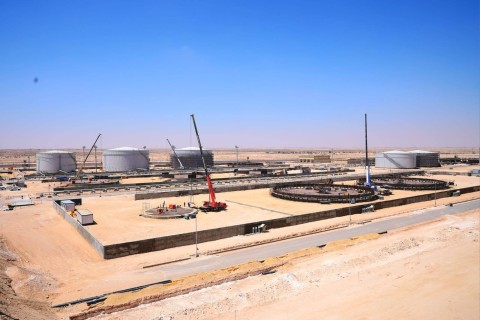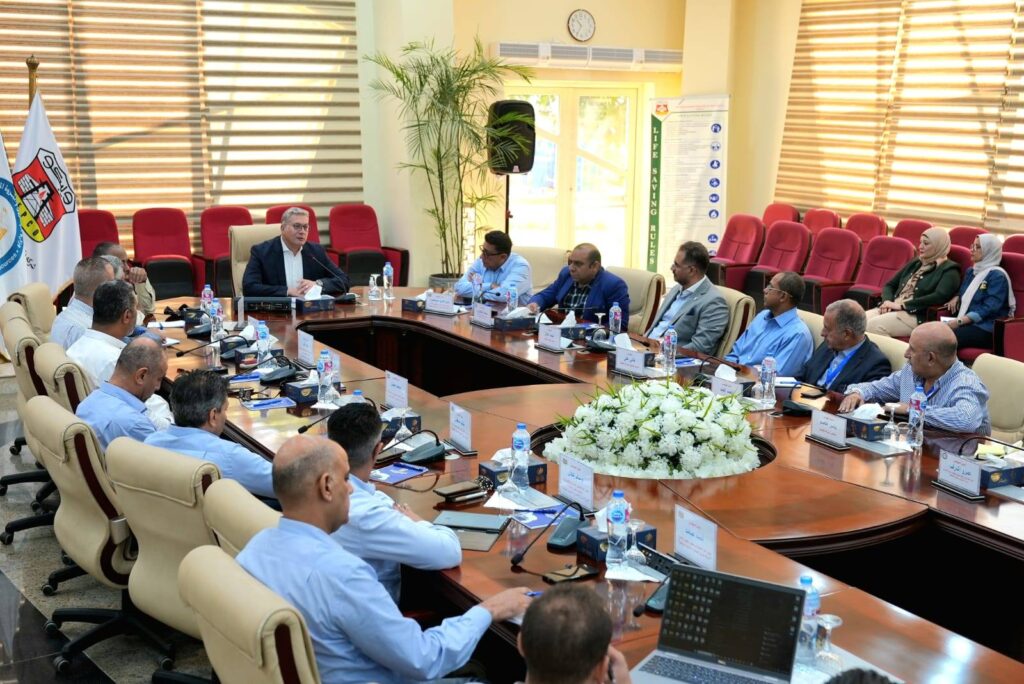Karim Badawi, Minister of Petroleum and Mineral Resources (MoPMR), has paid a field visit at El Hamra Petroleum Port in the New Alamein City to inspect the ongoing development and expansion works. Following the model of the Fujairah Port in UAE, Egypt aims to transform El Hamra Port as a pivotal hub and a logistics center for storing and handling crude oil and petroleum products on the Mediterranean coast, based on the cooperation agreement signed between MoPMR and the government of the Emirate of Fujairah.
During the visit, the Minister met with Salah Abdel Karim, CEO of the Egyptian General Petroleum Corporation (EGPC), Ahmed Adel, Advisor to the Government of the Emirate of Fujairah, and several officials from both sides. He stressed the importance of intensifying efforts to expedite the procedures and implementation steps for the crude oil and petroleum products storage, handling, and trading hub project at El Hamra Port.
The agreement entails transferring the experience of developing the Port of Fujairah to establish a petroleum logistics zone in the Hamra Port area on the Mediterranean Sea. It leverages Egypt’s strategic geographical location and the petroleum sector’s infrastructure at Hamra Port to facilitate the trading of petroleum products through the port’s facilities. The agreement also includes supplying petroleum products to help meet part of the local demand.
Badawi directed that a clear and specific timetable be set for the implementation of the project phases, benefiting from the Port of Fujairah’s management and operational systems, international accreditation standards, and the application of the latest safety systems.

As the port operator, Ibrahim Massoud, Chairman of Western Desert Operating Petroleum Co. (WEPCO), briefed the Minister on the current status of works in both the northern and southern areas of the port. He explained that in the northern area, four new crude oil storage tanks are being built to increase the total capacity from 2.8-5.3 million barrels (mmbbl).
Massoud added that a fully integrated zone is being established in the southern area for the storage, handling, and loading of petroleum products, with a total capacity of 130,000 tons. It will be implemented on two phases: the first, to be completed by the end of this year, includes two diesel storage tanks. The second, to be completed in the second quarter of next year, includes six tanks for gasoline, diesel, and jet fuel.
He noted that the ambitious vision aims to increase the port’s capacity by 2030 to store and handle 20 mmbbl of crude oil and 400,000 tons of petroleum products.




